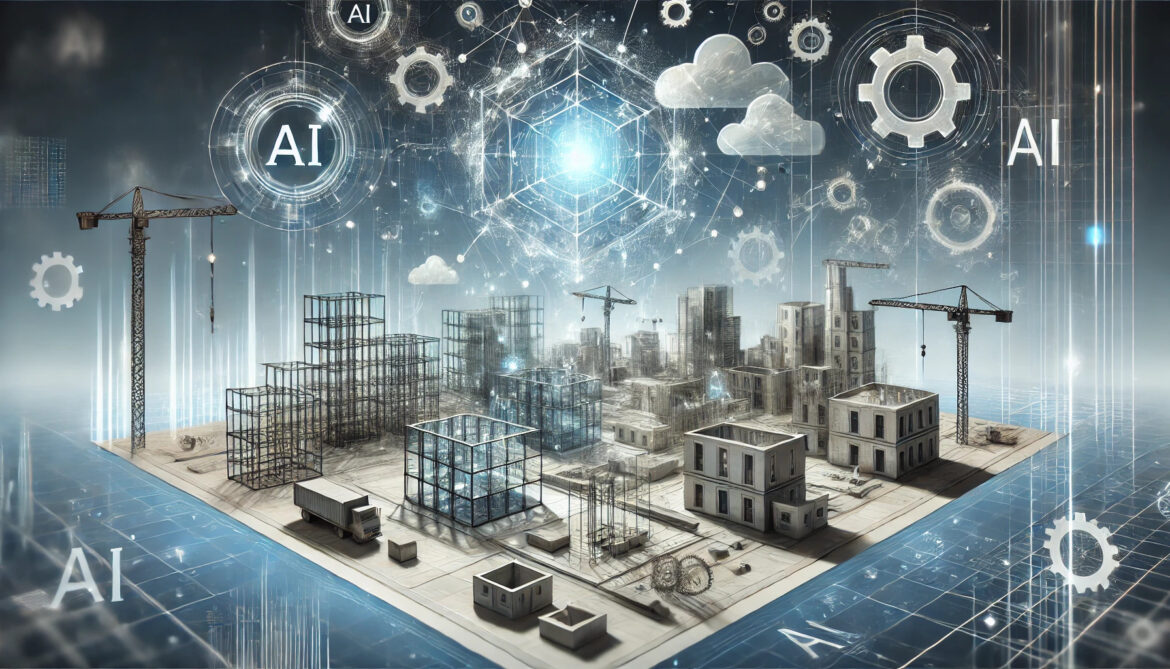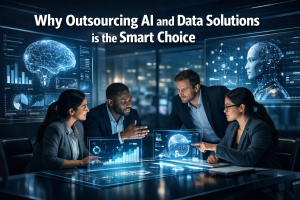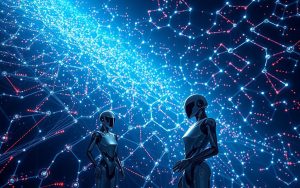Table of Contents
The use of AI in construction isn’t just about enhancing efficiency; it’s about reshaping how projects are planned, executed, and maintained. With AI, construction professionals can achieve safer working conditions, reduce costs, and optimise timeframes.
More than ever, construction companies are looking for ways to stay ahead of the curve. By integrating AI into their daily operations, they can achieve the precision and agility needed to meet modern demands. Let’s explore why AI is important for the construction industry and the transformative impact it can have on the sector.
Enhancing Project Planning and Design
One of the most challenging aspects of construction is the planning phase. Traditionally, this process has been time-consuming and prone to errors, with project delays and cost overruns as common consequences. However, AI can revolutionise this stage by improving accuracy and minimising human error.
- AI-powered design tools: These tools help architects and engineers generate accurate 3D models and simulations, offering insights into structural integrity and potential issues. This means fewer surprises during construction and more reliable project outcomes.
- Predictive analytics for budgeting: AI can forecast potential cost overruns by analysing historical data, helping contractors and project managers stay on budget. This predictive capacity can make or break a project, especially when margins are tight.
By integrating AI early on, companies can optimise their designs, making the entire construction process smoother and more cost-efficient.
Improving Site Safety and Risk Management
Safety is a top priority in the construction industry, but the sector remains one of the most dangerous to work in. AI has the potential to drastically improve safety on construction sites by identifying hazards before they cause accidents.
- AI-based safety monitoring: AI can monitor construction sites using cameras and sensors, identifying risks such as workers not wearing proper safety gear or dangerous structural weaknesses. It can also track workers’ movements, identifying patterns that may lead to injuries.
- Drones and AI for inspections: Drones equipped with AI can perform site inspections in hazardous or hard-to-reach areas, reducing the need for human involvement. This not only speeds up inspections but also ensures greater accuracy, reducing the chances of human error.
AI’s ability to proactively manage risks and ensure compliance with safety standards is a game-changer for the construction sector.
Enhancing Efficiency Through Automation
AI-powered automation is reshaping construction workflows, allowing companies to achieve greater efficiency in their operations. Through automation, tasks that once required manual labour or meticulous oversight can now be done faster and more accurately.
- Automated machinery: Robots, powered by AI, can handle repetitive tasks such as bricklaying, concrete pouring, or even painting. This reduces the time spent on these tasks and ensures uniform quality.
- AI-driven scheduling and resource management: With AI, construction managers can optimise schedules and allocate resources more effectively. AI tools can analyse current progress, predict delays, and adjust schedules automatically. This ensures that projects stay on track and resources are utilised to their full potential.
By reducing the reliance on manual processes, AI allows construction teams to focus on more critical aspects of the project, enhancing overall productivity.
Sustainable Construction with AI
Sustainability is becoming increasingly important in the construction industry. Pressure is mounting on companies to reduce their carbon footprint and adopt environmentally friendly practices. AI offers solutions to achieve these goals.
- Optimising energy usage: AI can track and manage energy consumption on construction sites, ensuring that resources are used efficiently. This not only reduces costs but also minimises the environmental impact of construction activities.
- Predictive AI to help contractors choose the most carbon-efficient mix: Choosing the right mix of materials is essential to reducing carbon emissions. AI tools can analyse factors such as local availability, environmental conditions, and project requirements to recommend the most sustainable options. Predictive AI to help contractors choose the most carbon-efficient mix is one such example of how AI can directly contribute to sustainable practices.
By embracing AI, construction companies can meet sustainability targets without compromising on quality or efficiency.
Data-Driven Decision Making
Data is at the core of AI’s effectiveness, and the construction industry is no exception. AI allows companies to harness vast amounts of data, transforming it into actionable insights that drive smarter decision-making throughout the project lifecycle.
- Real-time data analysis: AI can process data from multiple sources, such as weather patterns, material deliveries, and workforce availability, to offer real-time insights. This helps construction managers make informed decisions, adjusting plans as needed to prevent costly delays.
- Historical data for future projects: By analysing data from past projects, AI can offer insights into best practices and potential pitfalls, improving future outcomes. This means construction companies can continually refine their operations based on evidence rather than guesswork.
Using AI to gather and analyse data enables a more strategic approach to construction, where decisions are based on factual evidence rather than intuition.
AI in Post-Construction: Maintenance and Longevity
AI’s benefits don’t stop once a building is complete. In fact, AI plays a crucial role in the post-construction phase, ensuring that structures are maintained efficiently and remain in good condition for years to come.
- Predictive maintenance: AI can monitor the condition of a building, identifying signs of wear and tear before they become major issues. By predicting when maintenance is needed, building owners can address problems early, reducing the likelihood of costly repairs.
- Smart buildings: AI-powered systems can also optimise the operation of smart buildings, managing everything from heating and cooling to lighting and security. These systems learn from occupant behaviour, ensuring that the building operates at peak efficiency while keeping operational costs low.
Incorporating AI in the post-construction phase guarantees that buildings are not only well-constructed but also intelligently maintained.
The Future of AI in Construction
The construction industry is at the cusp of a technological revolution. AI is transforming how projects are designed, executed, and maintained, offering solutions to some of the sector’s most pressing challenges. From improving safety and efficiency to promoting sustainability, the potential of AI is immense. By embracing these innovations, construction companies can remain competitive and better prepared for the future of building.









